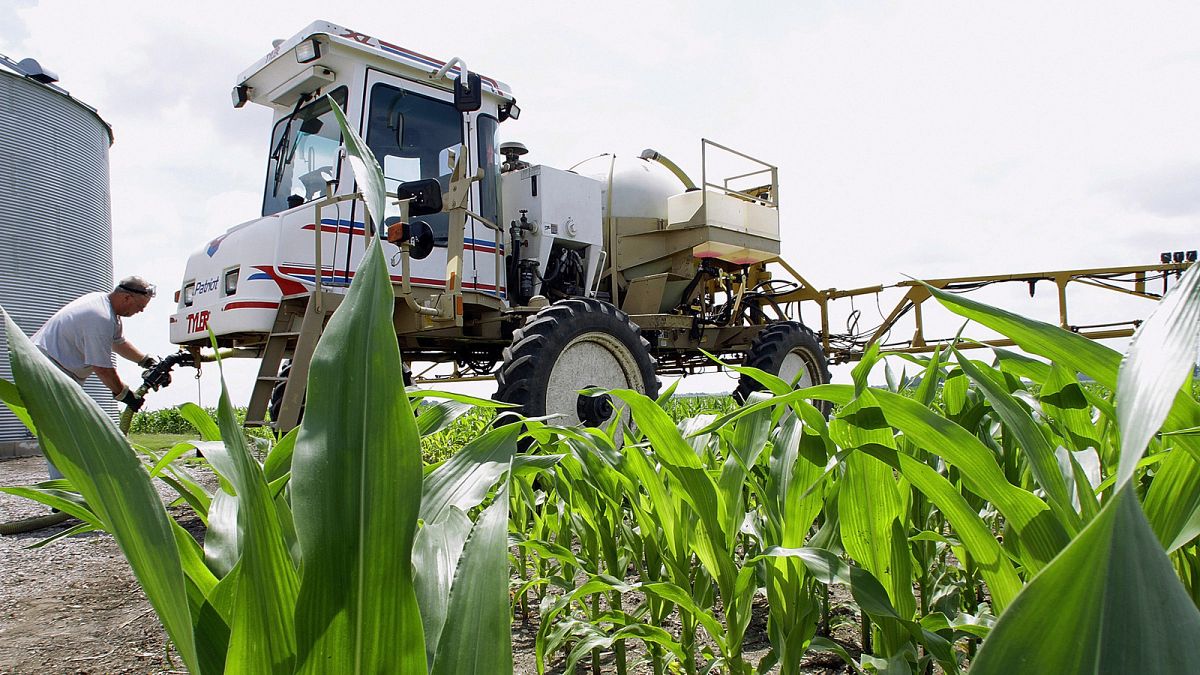EU member states have failed to agree on the European Commission's proposed 10-year renewal for the use of glyphosate, a controversial chemical substance used in herbicides.
Several member states, including France, abstained in a vote on Friday in the Standing Committee on Plants, Animals, Food and Feed (PAFF), following two-day technical discussions in Brussels.
Austria, Luxembourg, and Croatia voted against the proposed extension.
With no qualified majority either for or against, an appeal committee will now reconsider the Commission's text, with a second vote due to take place in the first half of November.
A spokesperson for the European Commission confirmed on Friday that "dialogue" can still take place between member states in order to reach a compromise. Many capitals have expressed concerns about the powerful herbicide's impact on biodiversity and human health.
If a qualified majority is not achieved in November, the Commission will take a final decision on the renewal.
In September, the EU executive recommended renewing the approval of glyphosate use in the EU market for a further 10 years beyond its expiry date of 15 December this year, after the bloc's food safety agency EFSA found "no critical areas of concern" in a July assessment.
But EU officials recognised that the EFSA analysis included data gaps and had failed to reach conclusions on certain aspects, including for consumer diets.
Glyphosate has been a source of controversy since the World Health Organization's cancer agency concluded in 2015 that it was probably carcinogenic to humans.
Earlier this week, Euronews spoke to Sabine Grataloup, whose son Théo was born with severe malformations after he was exposed to a glyphosate-based weed killer while in his mother's womb.
In an attempt to convince member states, the European Commission had sought to introduce "risk mitigation measures" including buffer strips of ten meters around sprayed areas and the use of specific nozzles to reduce "spray drift".
NGO Pesticide Action Network (PAN) Europe, which had fiercely criticised the Commission's proposed renewal, welcomed member states' decision to delay the decision.
"We consider that it (the Commission's proposal) doesn't take into account all the scientific evidence that we have that glyphosate harms human health and the environment and that therefore under EU law it should be banned," Angeliki Lysimachou, PAN Europe's head of science and policy, told Euronews.
"The fight is not over yet, but there is a deadline," Lysimachou said. "The Commission and Europe have made a commitment to reduce dependency on pesticides and to adopt alternative methods such as more nature-based and environmentally friendly solutions. An extension of glyphosate for ten years is really worrying."
Austria and Luxembourg had previously announced they would oppose the renewal. Luxembourg is the only EU country to have temporarily banned the substance in the past.
The Dutch Agriculture Minister Piet Adema had confirmed the Netherlands would abstain in the vote, explaining its "nuanced position" would not be "done justice by a vote for or against" the proposal.
In September, the German agriculture minister warned of the threats of glyphosate to biodiversity and stressed the need for a coordinated phase-out at European level.
Italy voted in favour of the 10-year extension on Friday but with some conditions, including the prohibition of glyphosate use during harvest collection, according to diplomatic sources.
